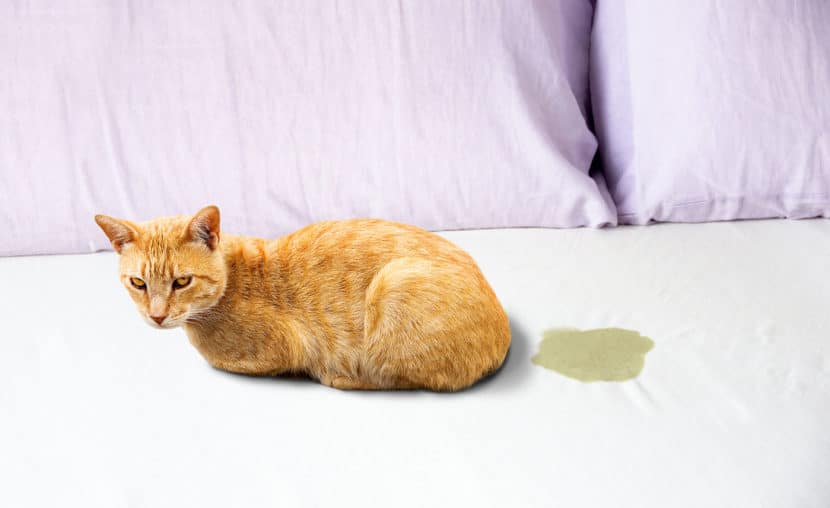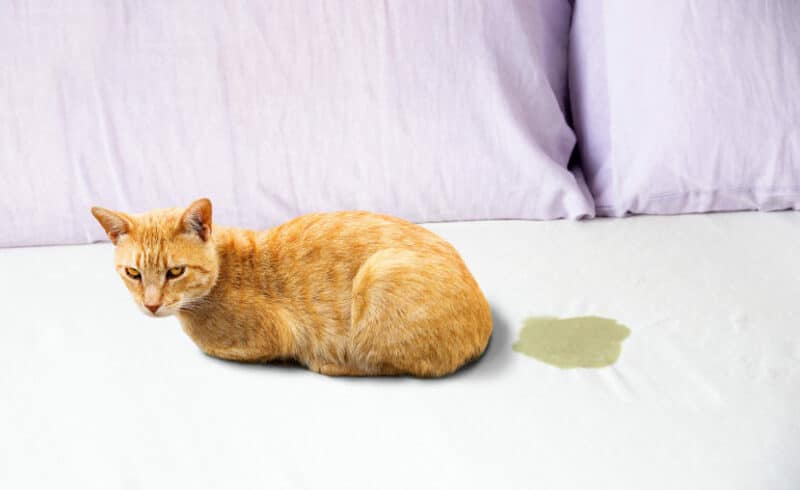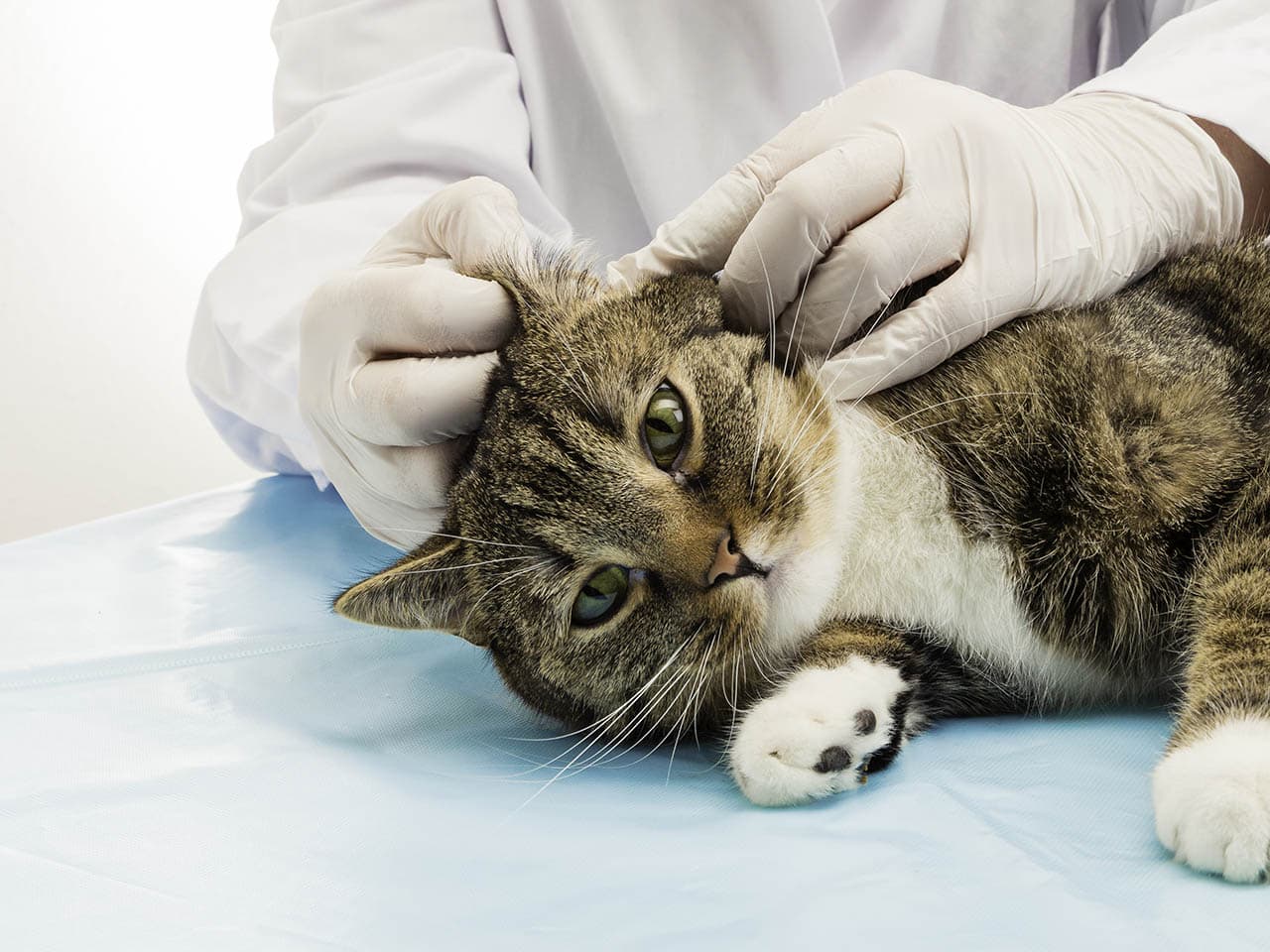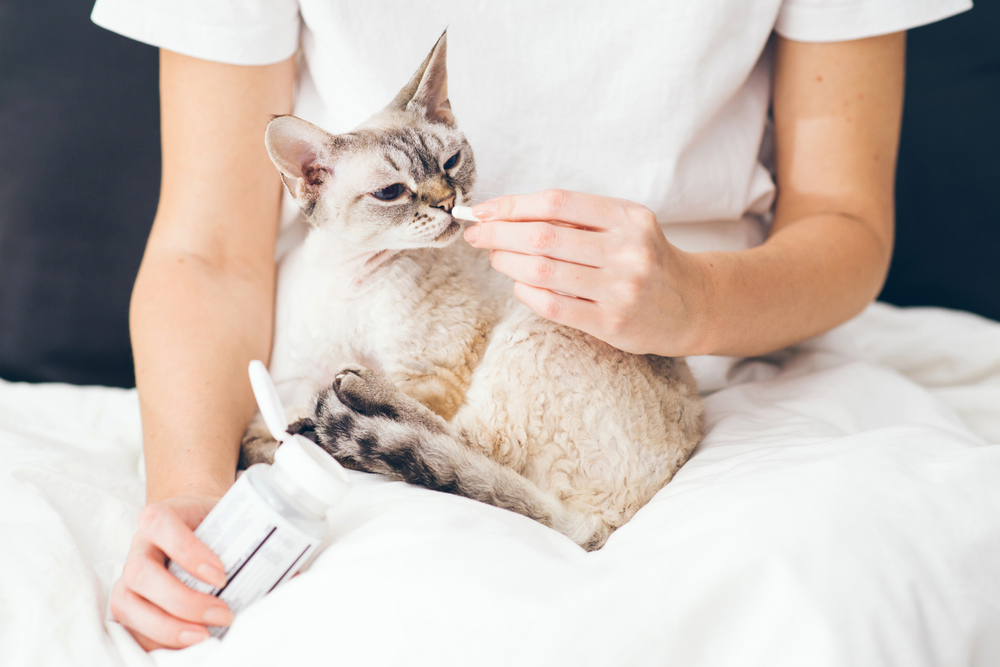Click to Skip Ahead
Pandora syndrome may affect any organ or organ system, such as the urinary tract. Chronic anxiety and stress in cats can lead to clinical signs of abnormal urination that may mimic other common urinary tract issues. Once those known causes are eliminated, Pandora syndrome may be diagnosed. It’s most common in young to middle-aged cats.
What Is Pandora Syndrome in Cats?
Pandora syndrome is a set of clinical signs involving abnormal urination in cats. The signs may come and go as the cat is affected by stress, including environmental stressors like unfamiliar cats and people. This condition is also known as feline idiopathic cystitis (FIC) when the underlying cause is unknown. Cystitis is the medical term for inflammation of the bladder.
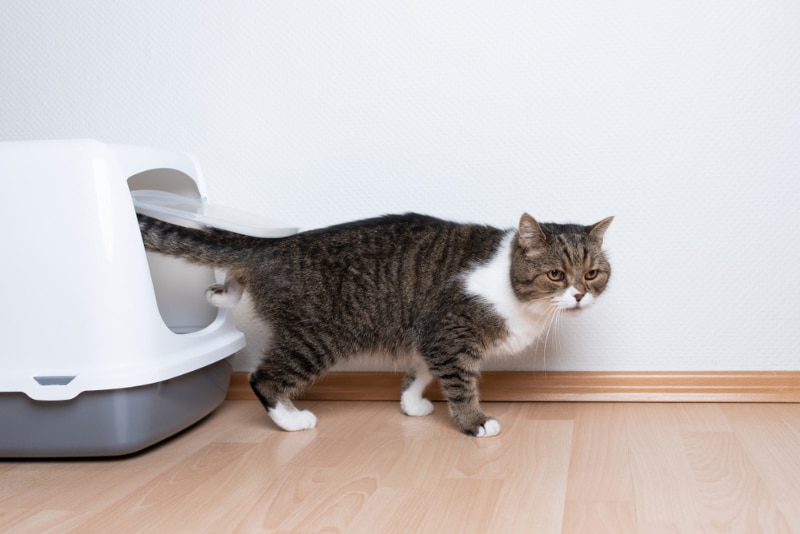
What Are the Signs of Pandora Syndrome?
The signs of Pandora syndrome in cats may include:
- Difficulty urinating
- Frequent urination
- Blood in urine
- Discolored urine
- Urinating outside of the litter box
- Unable to urinate
What Causes Pandora Syndrome?
Pandora syndrome is idiopathic, meaning there is no identifiable cause or diagnosis for the abnormal urination. Causes that are often ruled out before Pandora syndrome or FIC is diagnosed include:
- Bladder stones
- Bladder infection
- Urethral plug
- Injury or trauma
- Nerve dysfunction
- Narrowed urethra
- Cancer or tumor
Stress can be a major contributing factor to the development of Pandora syndrome. Unfamiliar cats, changes in routine, lack of available litter boxes, or no enrichment activities can all negatively affect your cat, leading to stress.

How Do I Care for a Cat With Pandora Syndrome?
After known causes for your cat’s abnormal urination signs have been eliminated, Pandora syndrome may be diagnosed. To come to that diagnosis, your veterinarian will review your cat’s medical history and perform a thorough physical examination. Tests that your vet may perform on your cat include blood tests, urinalysis, urine culture, abdominal X-rays (possibly with contrast), abdominal ultrasound, cystoscopy (video exam of urethra and bladder), or a biopsy of bladder tissue.
Anti-anxiety medications are often prescribed to help alleviate stress and the development of Pandora syndrome. Pain medications may also be prescribed by your veterinarian to treat any pain associated with this syndrome. Medication to prevent spasming of the urethra can often help improve signs of difficult urination that your cat may be experiencing. Dietary changes, including offering more wet or canned food, can help increase water intake.
The most important changes that you can make to prevent Pandora syndrome in your cat begin at home. Reducing or eliminating stress altogether can help an FIC-prone cat. Ways to achieve this include:
- Keeping to a schedule that your cat is used to
- Providing many opportunities for play or enrichment activities
- Making changes slowly
- Keeping other cats away from your home
- Ensuring that there are enough litter boxes and resting places in a multi-cat household
- Setting up separate feeding stations for each cat
Pandora syndrome can reoccur in susceptible cats, so it is important to be aware of triggers or stressors that impact your cat’s quality of life. Avoiding those as much as possible will help decrease your cat’s stress response and the development of clinical signs.


Frequently Asked Questions
Is Pandora Syndrome Treatable?
Yes, Pandora syndrome can be managed medically with medication and by avoiding stress triggers that your cat may be sensitive to.
My Cat Has Not Urinated All Day; What Should I Do?
If your cat is not urinating, seek veterinary care as soon as possible, as this could be a life-threatening condition, such as an obstructed urethra.
Conclusion
Cats that are sensitive to stress may develop abnormal urinary clinical signs. This is known as Pandora syndrome and is diagnosed after all other known causes for urinary tract abnormalities have been eliminated. Pandora syndrome can be medically managed with anti-anxiety medications. To prevent an anxious cat from developing clinical signs, it is important to reduce stress triggers at home.
Stacie decided to focus on the urinary issue instead of being more generalized, but she is willing to edit it or rewrite it if necessary.
Featured Image Credit: cunaplus, Shutterstock

